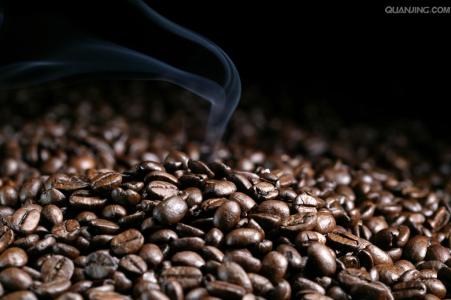Starbucks sells coffee and tea-push tea to expand the Chinese market
Starbucks China has also revealed that China's tea beverage market has great potential, so Chawana is Starbucks' strategic focus in the tea field. Through Starbucks stores, they will continue to bring Chawana's high-quality tea products to more customers. "in the next five years, we will effectively implement our development plan, and the total global tea business is expected to increase to US $3 billion. At present, there is no exclusive tea store in China, we will continue to listen to customer feedback and needs, and conduct a comprehensive assessment of the market environment, on the basis of which we will decide whether to open a tea store in China. " The person in charge said.
According to the analysis of China Industrial Information Network, from January to October 2015, the main income of the refined tea industry was 156.2 billion yuan, an increase of 12.5 percent over the same period last year, which was basically the same as the same growth rate last year, but slightly higher than that in the first half of the year.
China Business Daily reporter noted that in recent years, American fast consumer brands such as McDonald's, KFC, Coca-Cola and Pepsi are facing growth bottlenecks in the Chinese market. Revenue growth in the Chinese market for Yum, the parent company of KFC, has stagnated in the past four years, according to financial reports. Swire, which owns the manufacturing, promotion and distribution rights to Coca-Cola in seven Chinese provinces, has seen its beverage revenue decline last year. Since the beginning of this year, McDonald's and KFC have begun to cash out of the Chinese market by introducing strategic partners or selling franchises in disguise.
At a time when many American consumer goods are under downward pressure in the Chinese market, Starbucks is preparing to expand aggressively. Starbucks officially entered the Chinese market in 1999 and has maintained the pace of opening 30 to 50 new stores a year for the next 10 years. The pace has accelerated significantly since 2012, when it added 204 stores, up from 317 in 2013, and opened almost every day in 2014. According to IOC data, since 1998, per capita coffee consumption in China has been increasing at a rate of 30 per cent year by year, while the number of coffee shops in large and medium-sized cities is also growing at a steady rate of 25 per cent a year.
According to Starbucks, China and the Asia-Pacific region will continue to be important markets in Starbucks' global expansion strategy. Currently, Chinese mainland has nearly 2300 stores in 108 cities and is visited by more than 3.5 million customers every week. Starbucks is in a healthy stage of development in China, and is expected to have 3400 stores in China by 2019. In the next five years, it will open 500 stores a year in the Chinese market. Howard Schultz, CEO of Starbucks, said in an interview with the media that he was not surprised by the idea that there would be more stores in China than in the United States in the future.
"in the next few years, Starbucks will further meet customers' demand for store convenience and diversification in first-and second-tier mature markets, while constantly expanding into other emerging cities. Every Starbucks store wants to be the "third space" for customers outside their homes and offices. Whether there is a relatively mature coffee consumption culture and demand is one of our important considerations. Take the recent arrival of Starbucks in Yinchuan as an example, its stores are designed in northwest style, and the Yinchuan City Cup has been launched, incorporating local elements. "
Industry insiders pointed out that as many industries are sinking to cover more and more third-and fourth-tier cities, the coffee industry is one of the rare blue seas. What Starbucks needs to do in these new markets dominated by third-and fourth-tier cities is to win the favor of customers who do not drink coffee and become their "first cup".
Create a "fourth space" experience
In addition to selling coffee, while improving the customer store experience, Starbucks also wants to build an extension in the "fourth Space" with the launch of Starbucks Tmall's official flagship store, e-star card / gift card and mobile payment.
At the end of 2015, Tmall's official flagship store officially opened, realizing the docking of online and store experience, forming the "Internet + Coffee" platform. On June 20 this year, Starbucks launched exclusive mobile payment for its members in China. Starbucks Club members can instantly experience Starbucks mobile payments by binding a Starbucks gift card in Starbucks APP.

Important Notice :
前街咖啡 FrontStreet Coffee has moved to new addredd:
FrontStreet Coffee Address: 315,Donghua East Road,GuangZhou
Tel:020 38364473
- Prev

Master Kang joined Starbucks to grab 10 yuan of ready-to-drink coffee market
It is worth noting that Macquarie recently released a research report saying that the worst time for Master Kang is over, the market will revalue Master Kang, profits may bottom out in the second quarter of 2016, and profits are expected to recover gradually. Its profits for fiscal years 2016 and 2017 increased by 6.7% and 7.1%, respectively. Macquarie also mentioned that the weather from July to August this year was hotter than last year, stimulating demand for drinks, especially in late August.
- Next

The assumption of Hougu Coffee on the output of products and the amazing Planning of the Market
According to the product export idea of Hougu Coffee this year and Xiong Xiangren's plan for the market, we can boldly guess the use of Hougu Coffee in the 102 mu of comprehensive land stored in Chenggong. The warehousing and logistics center to be built in the future will become an important logistics base for the international export of Hougu Coffee. We want to take advantage of the climatic conditions of Kunming and the transportation advantages of Yunnan New Europe.
Related
- Can lightly roasted coffee beans be used to extract espresso? How finely should you grind high-quality coffee beans to make Italian latte?
- What is the difference between the world's top rose summer coffee and Yejia Shefi? What are the flavor characteristics of Yega Shefi coffee and Panama rose summer?
- The ceremony is full! Starbucks starts to cut the ribbon at a complimentary coffee station?!
- A whole Michelin meal?! Lucky launches the new "Small Butter Apple Crispy Latte"
- Three tips for adjusting espresso on rainy days! Quickly find the right water temperature, powder, and grinding ratio for espresso!
- How much hot water does it take to brew hanging ear coffee? How does it taste best? Can hot water from the water dispenser be used to make ear drip coffee?
- What grade does Jamaica Blue Mountain No. 1 coffee belong to and how to drink it better? What is the highest grade of Blue Mountain coffee for coffee aristocrats?
- What are the flavor characteristics of the world-famous coffee Blue Mountain No. 1 Golden Mantelin? What are the characteristics of deep-roasted bitter coffee?
- Can I make coffee a second time in an Italian hand-brewed mocha pot? Why can't coffee be brewed several times like tea leaves?
- Hand-brewed coffee flows with a knife and a tornado. How to brew it? What is the proportion of grinding water and water temperature divided into?

